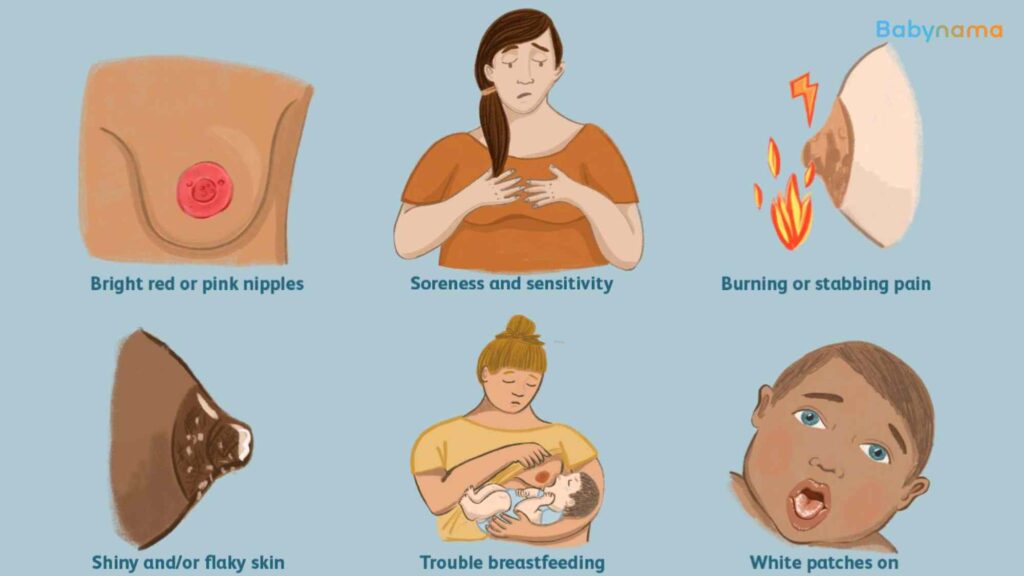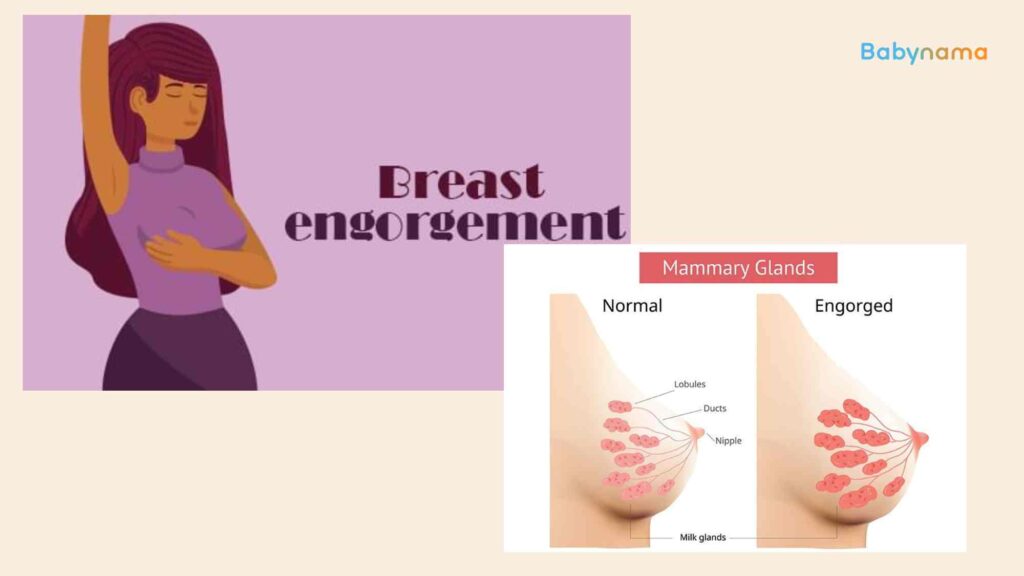There are a number of reasons why you may experience breast pain while you’re breastfeeding. Always ask for help from your pediatrician if you’re having problems breastfeeding. Here are some tips for addressing some of the most typical issues.
NOTE:
Nipple or breast pain is not normal. Nipple or breast pain is not a normal part of breastfeeding. Your nipples may be sensitive in the first few days after birth and while breastfeeding, but sore nipples or breasts indicate a problem. If you feel pain, you should seek help immediately.
Blood in breastmilk
If there is a small amount of blood in your breastmilk because of nipple trauma, it will not harm your baby. You can continue to breastfeed unless the pain becomes unbearable.
Breastfeeding parents with some medical conditions (such as hepatitis B or hepatitis C) may be advised to stop breastfeeding temporarily until the nipples have healed and there is no blood in the breastmilk. If this is the case, you can express breastmilk in replacement of a breastfeed to maintain your supply and discard your breastmilk until your nipples have healed.
Incorrect attachment is the main cause of nipple problems
Incorrect attachment of the baby onto the breast is the most common cause of nipple pain. Slightly changing the position of the baby on the breast should help. Contact your lactation expert for any of the queries related to improper latching.
Breast and nipple thrush
Breast and nipple thrush (a fungal infection) may occur in the first weeks after birth, but can develop at any time. Signs and symptoms may include:
- Severe, burning nipple pain for the entire breastfeed—correct attachment does not alter the pain.
- The nipples may be a brighter pink than normal and may be shiny. They may, however, look normal.
Treating thrush for mother –
Nipple and breast thrush is treated with antifungal medicine and antifungal nipple gel or creams. Antifungal gels and creams include nystatin, clotrimazole and miconazole. These are applied to the nipple after each feed. Oral antifungal treatment such as fluconazole may also be used. Contact your pediatrician for more information regarding treatment for the same.
Some of the symptoms are shown below –

Blocked breast milk ducts
The milk-making glands in your breasts are divided up into segments, rather like an orange. Narrow tubes called ducts carry the milk from each segment to your nipple. If one of the segments is not drained properly during a feed (perhaps because your baby is not attached properly), this can lead to a blocked duct.
You may feel a small, tender lump in your breast. Avoid wearing tight clothes or bras so your milk can flow freely from every part of your breast.
It’s important to deal with a blocked duct quickly as, if left, it could lead to mastitis.
Mastitis
Mastitis (inflammation in the breast) happens when a blocked duct is not relieved. It makes the breast feel painful and inflamed, and can make you feel very unwell with flu-like symptoms and/or body aches. If you do not deal with the early signs of mastitis, it can turn into an infection and you’ll need to take antibiotics.
To help prevent mastitis:
- Mothers should thoroughly wash their hands before touching the breasts after a nappy change.
- Make sure the baby is positioned and attached properly on the breast to assist in thorough breastmilk drainage.
- Wear loose, comfortable clothing. Bras, if worn, should be properly fitted.
Breast engorgement
Breast engorgement is when, for whatever reason, your breasts become overly full. They could feel unpleasant, tight, and hard. Engorgement in the early stages may be caused by your milk production. Newborns require frequent, little feedings. Your milk production may not be able to meet your baby’s needs for a few days.
If your baby is not well attached to the breast, it may be hard for them to take your milk when your breast is engorged.The nipple can become a little overstretched and flattened, and possibly painful.
Ask your lactation expert for advice immediately to help your baby relieve the engorgement and prevent it from happening again.

Conclusion
Always consult with healthcare professionals for guidance tailored to your specific needs and circumstances. Enroll in our free lactation webinar to understand more about pain suffered during breastfeeding, possible causes and solutions for the same .
